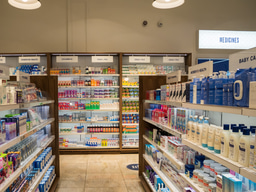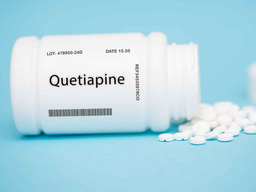Burnout, inadequate staffing and loneliness: Wellbeing survey reveals ‘relentless’ pressure in pharmacy

Pharmacists and pharmacy technicians are at high risk of burnout, a new wellbeing survey has revealed today (February 18).
The Royal Pharmaceutical Society (RPS) report, prepared in collaboration with charity Pharmacist Support and the Association of Pharmacy Technicians UK (APTUK), reveals a consistent trend to previous years as 87% of respondents are at “high risk of burnout”.
The burnout out trend was higher with community pharmacy respondents, who made up 46% of the survey’s 6598 respondents alongside other respondents from hospital pharmacy and general practice.
Read more: ‘Almost impossible to earn a living’: Locums take second jobs
Other alarming trends from the survey reveal that across all respondents, 70% felt that inadequate staffing “negatively impacted their mental health and wellbeing” and the same number reported feeling lonely or isolated “often or very often”
RPS president Professor Claire Anderson said the results “demonstrate the human cost of coping with the relentless workplace pressures” in pharmacy.
“We need collaborative efforts from Governments, employers and the NHS to tackle the pressures on frontline pharmacy teams and create more supportive work environments,” she added.
“Deeply concerning”
It was the first year that pharmacy technicians contributed to the report, and community pharmacy respondents in general were at higher risk of burnout alongside:
- Being less likely to take uninterrupted rest breaks
- Receiving insufficient protected learning time
- Being more likely to experience verbal or physical abuse from patients and the public
Just over a fifth said they felt their “mental health and wellbeing was a priority in the workplace”, and 61% said they “considered leaving their current role or the pharmacy profession” due to the impact work had on their mental health and wellbeing.
Read more: Staff struggle to feed their kids after Jhoots missed January wages
11% said they did leave the profession or role because of this, and 43% of pharmacy technicians reported “they enjoy or really enjoy their work” compared to only 34% of pharmacists.
Other factors negatively affecting mental health and wellbeing in the sector included lack of work-life balance (for 49%), increased financial pressures, lack of protected learning time, and lack of colleague or senior support (all for 47%), and long working hours (for 34%).
Pharmacist Support chief executive Danielle Hunt said the findings from the survey are “deeply concerning” and there is an “urgent need for action” to improve workplace wellbeing.
Read more: ‘Modernised corporate structure’: RPS reveals dates for ‘Royal College’ vote
“Strong evidence shows that creating an environment where people feel valued and supported can have meaningful impact on reducing burnout.
“This year’s survey also highlighted emerging concerns, including feelings of isolation and financial pressures … that align with what we’re hearing from students, trainees and working pharmacists,” she said.
Impact of medicines shortages
The survey also highlighted the impact of medicine shortages on the wellbeing of the pharmacy workforce, with 56% saying “pressures with managing medicines shortages had directly impacted their mental health”.
It shared that these shortages risked patient safety through “the potential to increase the risk of debilitating condition occurrence or loss of life” and “organising alternative medications can increase the risk of errors or missed patients”.
Read more: RPS: AI can ‘improve safe and effective’ use of medicines
The survey shared a common concern for ADHD patients of “a noted risk of withdrawal symptoms associated with the medication shortages and condition relapse”.
RPS’ Anderson said the “sense of ‘moral injury’ – of knowing what patients need but being unable to deliver it due to circumstances beyond their control – is taking a heavy toll on their wellbeing”.
“Finding solutions are essential not only for the wellbeing of the workforce but for ensuring safe and effective patient care,” she added.
Read more: How should you treat this stressed colleague?
41% also said their patients were “at risk by shortages, potentially leading to worsening health conditions, flare ups, relapses or reduced quality of life” and 49% had “suffered verbal abuse because of medicine shortages”.
Nearly three quarters of the abuse came from the public and patients, but 11% were from “a colleague and/or manager” as well.
Read more: Does stress in the pharmacy affect your mental health?
It comes as the RPS has proposed changes to its Royal Charter to help create “a robust foundation” for the membership body, with the vote on its plans to “become a royal college” to open on March 13.
And last month, the RPS revealed its support for the “responsible and effective use of artificial intelligence (AI)” in pharmacy and using the technology “to improve the safe and effective use of medicines, in any setting, and achieve better patient outcomes”.







Please sign in
If you are a registered user on C+D Community, please sign in